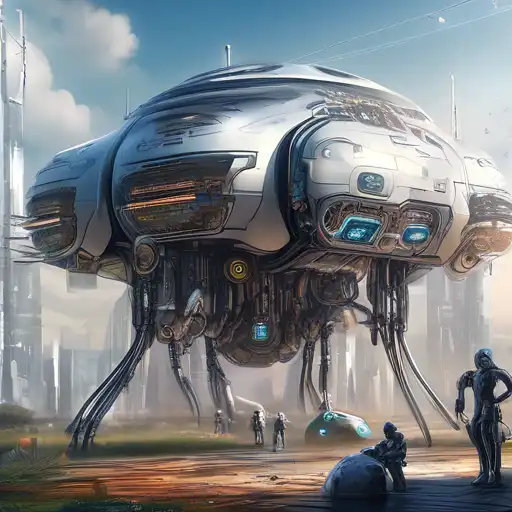Introduction to Artificial Intelligence's Evolution
Artificial Intelligence (AI) has transitioned from a futuristic concept to a cornerstone of modern technology. Today, AI is not just about robots or sci-fi movies; it's about real-world applications that are transforming industries, enhancing productivity, and reshaping our daily lives. This article delves into the current state of AI, exploring its advancements, challenges, and what the future holds.
The Current State of AI
AI today is more accessible and integrated into our lives than ever before. From machine learning algorithms that power recommendation systems to natural language processing (NLP) enabling virtual assistants, AI's applications are vast and varied. Businesses leverage AI for data analysis, customer service, and operational efficiency, while consumers enjoy personalized experiences in entertainment, shopping, and more.
Key Advancements in AI
- Deep Learning: Mimicking the human brain's neural networks to process data and create patterns for decision making.
- AI in Healthcare: From diagnosing diseases to personalizing treatment plans, AI is revolutionizing patient care.
- Autonomous Vehicles: Self-driving cars are becoming a reality, thanks to AI's ability to process and react to real-time data.
- AI Ethics and Governance: As AI becomes more pervasive, the focus on ethical use and regulation has intensified.
Challenges Facing AI Today
Despite its advancements, AI faces significant challenges. Data privacy concerns, the potential for job displacement, and the need for massive computational resources are just a few hurdles. Moreover, ensuring AI systems are free from bias and operate transparently remains a critical issue for developers and regulators alike.
The Future of AI: What to Expect
The future of AI is brimming with possibilities. Experts predict advancements in quantum computing could exponentially increase AI's capabilities. Meanwhile, the integration of AI with other technologies like the Internet of Things (IoT) and blockchain promises to unlock new innovations. As AI continues to evolve, its potential to address complex global challenges, such as climate change and healthcare, is immense.
Preparing for an AI-Driven Future
To harness AI's full potential, stakeholders must focus on education, ethical frameworks, and infrastructure. Investing in AI literacy and ensuring equitable access to technology will be key to fostering an inclusive future. Additionally, collaboration between governments, industries, and academia is essential to navigate the ethical and societal implications of AI.
Conclusion
Artificial Intelligence is no longer a distant dream but a present reality with a promising future. As we stand on the brink of AI's next era, understanding its current trajectory is crucial for leveraging its benefits and addressing its challenges. The journey of AI is just beginning, and its impact on society, economy, and individual lives will continue to grow in ways we are just starting to imagine.
